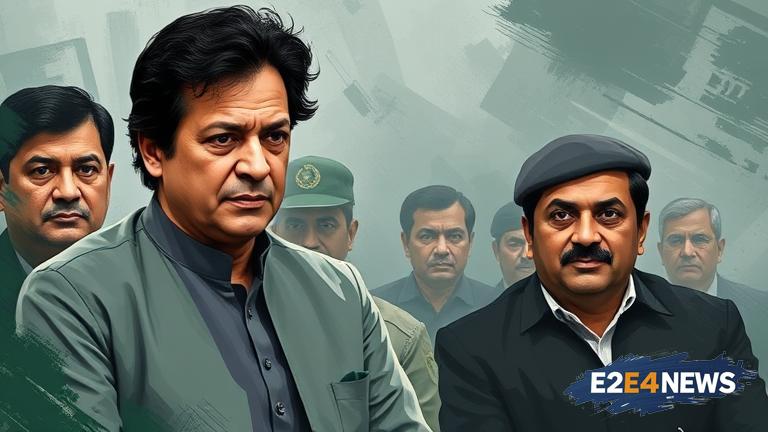The recent sentencing of Imran Khan, the former Prime Minister of Pakistan, to two years in prison has sent shockwaves throughout the country’s political landscape. Khan, who is the chairman of the Pakistan Tehreek-e-Insaf (PTI) party, was found guilty of corruption charges and has been disqualified from holding public office. The verdict has stalled the PTI party, which has been a major player in Pakistani politics. The party’s leadership is now in disarray, with many of its top leaders either in prison or in hiding. The situation has sparked widespread protests and demonstrations across the country, with PTI supporters demanding Khan’s release and calling for fresh elections. The government, led by Prime Minister Shehbaz Sharif, has vowed to maintain law and order, but the situation remains volatile. The international community has also expressed concern over the developments, with many calling for the release of Khan and the restoration of democracy in Pakistan. The PTI party has announced plans to challenge the verdict in the higher courts, but the process is expected to take several months. In the meantime, the party’s activities have been severely curtailed, with many of its leaders facing arrest and persecution. The situation has also raised questions about the independence of the judiciary in Pakistan, with many accusing the government of using the courts to silence its opponents. The PTI party has a significant following in Pakistan, and Khan’s imprisonment has galvanized his supporters, who see him as a victim of political persecution. The party’s popularity has been fueled by its anti-corruption stance and its promise to bring about change in Pakistan. However, the party’s leadership has been criticized for its lack of experience and its failure to deliver on its promises. The current situation has also highlighted the deep divisions within Pakistani society, with many seeing the PTI party as a symbol of resistance against the traditional elite. The party’s supporters come from all walks of life, including the middle class, the working class, and the rural poor. They see Khan as a champion of their rights and a leader who is willing to challenge the status quo. The government, on the other hand, has accused the PTI party of promoting chaos and anarchy, and has vowed to take tough action against its supporters. The situation has also raised concerns about the future of democracy in Pakistan, with many fearing that the country is sliding towards authoritarianism. The international community has called for calm and restraint, and has urged all parties to engage in dialogue and find a peaceful resolution to the crisis. The United States, the European Union, and other major powers have expressed concern over the developments, and have called for the release of Khan and the restoration of democracy in Pakistan. The situation has also sparked a debate about the role of the military in Pakistani politics, with many accusing the army of interfering in the country’s affairs. The military has denied these allegations, but the situation remains tense. In conclusion, the imprisonment of Imran Khan has stalled the PTI party and has thrown Pakistani politics into turmoil. The situation has sparked widespread protests and demonstrations, and has raised concerns about the future of democracy in Pakistan. The international community has called for calm and restraint, and has urged all parties to engage in dialogue and find a peaceful resolution to the crisis.





